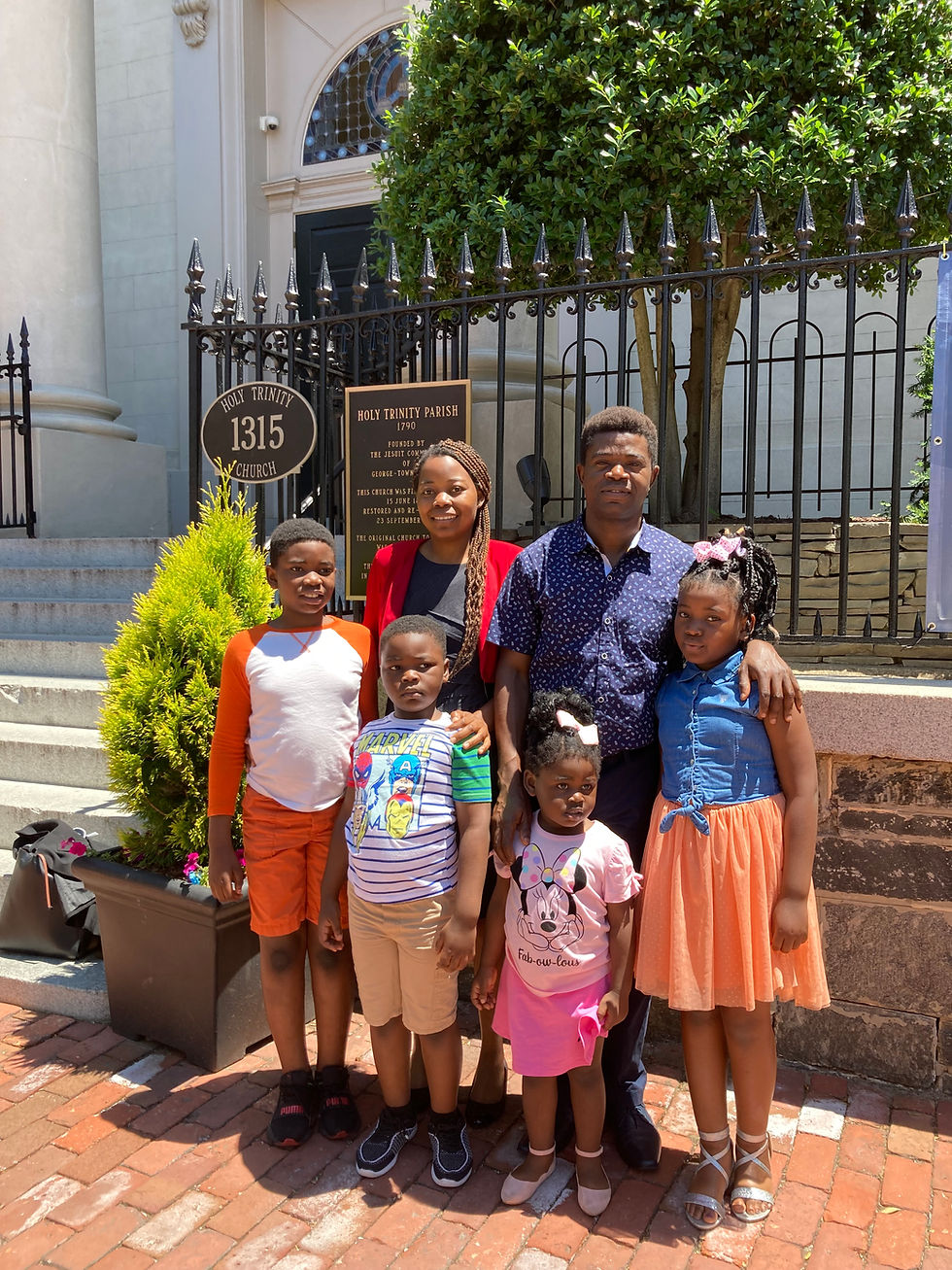All God Asks of Us
- Holy Trinity Catholic Church
- Jun 16, 2021
- 4 min read
Updated: Jun 23, 2021
By Rebecca Hoesterey

On Friday, June 6, Holy Trinity School celebrated the graduation of the Class of 2021. As their religion teacher, I had the great honor of accompanying every student in the class this past year. Forty-eight students who exhibited bright, sharp minds and hearts of gold and resilience. Forty-eight students who often made the most of the rough — and seemingly never-ending — circumstances with which they had been dealt for their final year of middle school. Forty-eight students who increasingly felt giddy and nervous as the reality of high school rested upon their shoulders. Forty-eight students who had grown in heart and in height at a surreal speed before my eyes.
On June 6, I positioned myself in the back of the church with some of my faithful co-educators to witness this climactic evening unfold. First, the liturgy; then, the commencement ceremony. I had mused for the past two weeks about the emotions that might surface once the school year had ended. Would I feel sappy and sad as I said farewell to a group of kids who had become the foundation of my joy for the past nine and a half months? Would I feel ready and at peace knowing God was calling me to participate in the great act of love of letting them go? Surprising myself, I was actually feeling the latter on the evening of graduation.
As the liturgy transitioned into the commencement ceremony, I noticed veteran teacher Mary Shannon close her trusty binder, which included special notes for the evening. She then turned to me and said, “We’re done. There’s nothing more that we need to do,” and she motioned for us to take a seat. Of course, I knew she was simply referring to our duty of directing students to their specific roles in the liturgy.
In typical Rebecca Hoesterey fashion, though, I began to deeply contemplate her words. “We’re done,” I thought to myself. “There’s nothing more that we need to do.” Relief. I was done with the long school year; there was nothing more that I needed to do. No more lesson plans or grading. No more switching between virtual and in-person schedules. No more asking students to keep their camera on or to refrain from hovering over one another. As I watched each student walk to the altar to receive his or her diploma, I took my thoughts one step further: “There’s nothing more that I can do.”
I had wholeheartedly given my passion for Christ and his Church to these students this past year. Even on my darkest pandemic days, God graced me with enthusiasm and confidence to discuss the history of the Catholic Church and holy role models; prayer and Ignatian spirituality; the Jesuit tradition, social injustices, and current events. I deeply desired for my students to learn about the beauty (and the messiness) of the Church and to grow in personal relationship with God. Often, though, I would log off or drive home wondering if they had absorbed anything. If you are an educator, I imagine you are guilty of sharing this sentiment at some point in your career.
I could have easily walked away from the school year consumed with the bad spirit of doubt and worry that I had poorly taught a lesson or that I had not done enough to help them grow in love and knowledge. However, with a tap on the shoulder from God at graduation, I was filled with the consoling thought, “There’s nothing more than I can do. I have done my best. God will continue to guide them from here.” How liberating. Bishop Ken Untener of Saginaw, Michigan phrased it best in his prayer “Prophets of a Future Not Our Own”:
“...We plant the seeds that one day will grow. We water seeds already planted, knowing that they hold future promise. We lay foundations that will need further development. We provide yeast that produces far beyond our capabilities. We cannot do everything, and there is a sense of liberation in realizing that. This enables us to do something, and to do it very well. It may be incomplete, but it is a beginning, a step along the way, an opportunity for the Lord's grace to enter and do the rest…”
I have often returned to this prayer while in ministry and education, and God has always used it to guide my visions, goals, and efforts. I was never meant to be my students’ master builder or messiah. I was never meant to provide the most comprehensive lesson ever on Church history. I may never fully see the fruits of my efforts. And that is ok.
My role has been to plant seeds, to lay foundations, and (the biggest task) to trust that the Holy Spirit will continue to work in my beloved students long after they have left my classroom. It is easier said than done to trust, especially when I fall into the trap of wanting to be a messiah; however, the continual awareness that there is nothing more that I can humanly do has allowed me to grow in peace and in faith that the Lord’s grace will always enter and do the rest. It is incomplete work, and God is not finished.
Seeds are being planted, friends — in the classroom, in the workplace, among our families and friends. The fruit of our labor may be beyond our vision. May we patiently water the seeds for now and rest in faith that God has his eye on bringing the Kingdom to fruition.







Comments